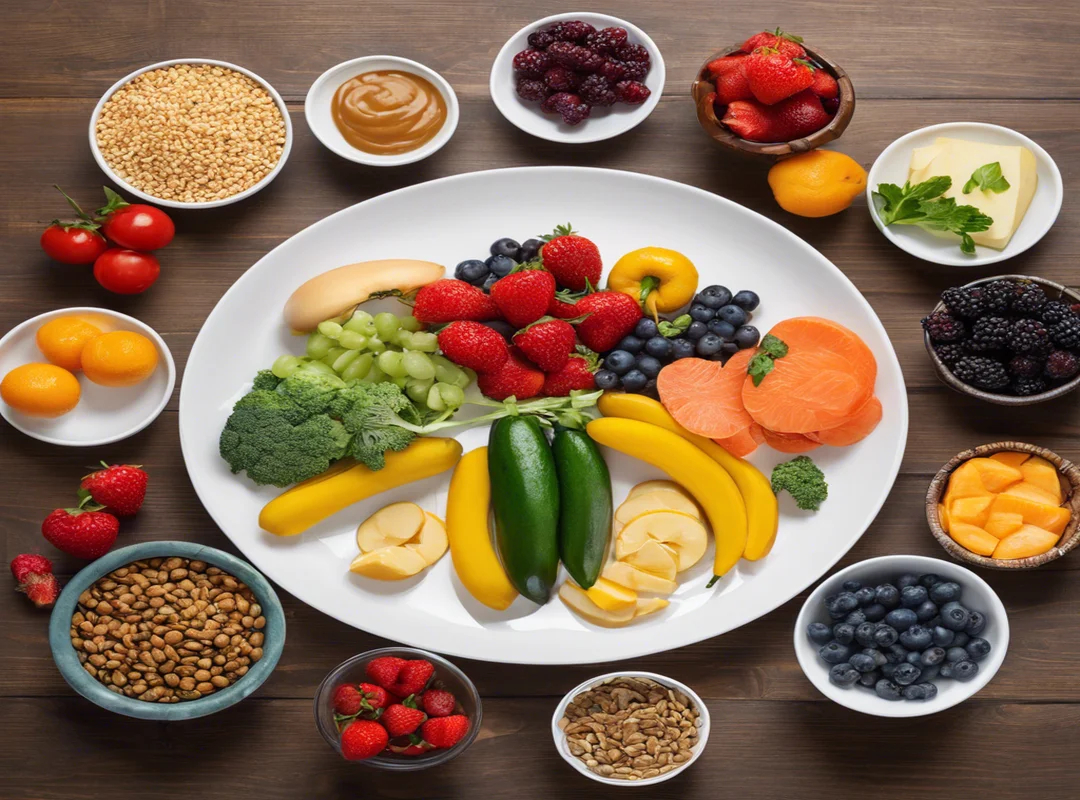Eating a balanced diet is an essential part of maintaining good health and ensuring your body gets the nutrients it needs to function optimally. With so much information – and misinformation – out there, knowing where to start can be challenging. Let’s break it down and explore the key components of a balanced diet and provide some practical tips to help you make healthier choices.
The Basics of a Balanced Diet
A balanced diet goes beyond counting calories or restricting certain food groups. It ensures your body receives a diverse range of nutrients from various sources to support overall health. This includes macronutrients (protein, carbohydrates, and fats) and micronutrients (vitamins, minerals, and fiber). Each plays a specific role in keeping your body functioning at its best.
Macronutrients: The Building Blocks
Proteins
- Role: Building and repairing body tissues, producing hormones and enzymes, supporting immune function.
- Sources: Lean meats, poultry, fish, eggs, dairy, beans, nuts, and seeds.
Carbohydrates
- Role: Providing energy, essential nutrients, and fiber.
- Types: Simple (quick energy from sugary foods) and complex (sustained energy from whole grains, fruits, vegetables, legumes).
- Sources: Whole grains, fruits, vegetables, legumes.
Fats
- Role: Supporting brain health, absorbing vitamins, providing essential fatty acids.
- Types: Saturated, unsaturated (healthy fats from avocados, olive oil, nuts, seeds), and trans fats (to be minimized).
- Sources: Avocados, olive oil, nuts, seeds, fatty fish.
Micronutrients: Essential Vitamins and Minerals
Micronutrients support various bodily functions, such as:
- Calcium and Vitamin D: Bone health.
- Iron: Oxygen transport in the blood.
- Vitamin C: Immune support and skin health.
- B Vitamins: Energy metabolism and brain function.
Eating the Rainbow
One of the simplest ways to ensure you’re getting a variety of nutrients is to eat plenty of colorful fruits and vegetables. Different colors signify diverse phytonutrients, which have powerful health benefits:
- Red (tomatoes, red peppers): Rich in lycopene, good for heart health.
- Orange/Yellow (carrots, sweet potatoes): High in beta-carotene, good for vision.
- Green (spinach, kale): High in vitamins K and C, folate, and fiber.
- Blue/Purple (blueberries, eggplants): Packed with antioxidants, good for brain health.
- White (cauliflower, garlic): Contain various nutrients that boost immunity.
Whole Foods for Wholesome Nutrition
Whole foods, which are minimally processed and remain close to their natural state, should make up the majority of your diet. These are richer in nutrients and provide your body with the fuel it needs.
Balance and Moderation
A healthy relationship with food involves listening to your body’s hunger and fullness cues and enjoying a diverse range of foods without strict restrictions. This can include occasional treats, like a slice of cake at a birthday celebration or a glass of wine with dinner. It’s all about moderation and ensuring you’re not consuming excessive amounts of processed or high-sugar foods, which can have negative impacts on your health over time.
Hydration: The Unsung Hero
Hydration is an important part of a balanced diet. Water supports vital bodily functions, including digestion, absorption, circulation, and the creation of saliva. It also helps transport nutrients and oxygen to cells and regulates body temperature. Aim to drink plenty of fluids throughout the day, and limit intake of sugary drinks, which can contribute excessive calories and negatively impact dental health.
Practical Tips for a Balanced Diet
- Plan Your Meals: Include a source of protein, complex carbohydrates, and healthy fats in each meal.
- Diversify Your Diet: Incorporate a variety of foods to ensure a wide range of nutrients.
- Read Labels: Be mindful of added sugars, unhealthy fats, and processed ingredients.
- Listen to Your Body: Adjust your macronutrient balance based on your energy levels, activity, and overall health.
- Stay Hydrated: Drink plenty of water and limit sugary drinks.
A balanced diet is about nourishing your body with a variety of nutrient-dense foods and enjoying treats in moderation. It’s a sustainable approach to health that can be tailored to individual needs and preferences. By incorporating these tips into your daily routine, you can improve your overall health and develop a positive relationship with food that will benefit you for years to come.


